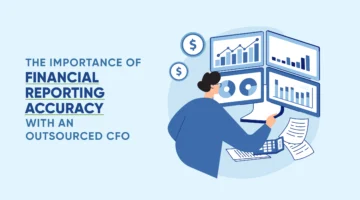Riding the Wave: Mastering the Basics of Inflation
The Inner Workings of Inflation
Inflation refers to the general increase in prices of goods and services over time, leading to a decrease in the purchasing power of a currency. It is commonly measured using a consumer price index (CPI), which tracks the prices of a basket of representative goods and services. Inflation occurs due to various factors, including increased demand, rising production costs, changes in government policies, or expansionary monetary policies. When inflation is moderate, it is beneficial as it encourages spending and investment. However, high or unpredictable inflation adversely affects an economy by eroding savings, reducing real wages, and creating uncertainty in the business environment. Central banks and governments often employ monetary tightening and fiscal policies to manage inflation and maintain price stability.
The US inflation rate currently stands at 4.93%, slightly lower than the previous month’s rate of 4.98%. This current rate also exceeds the long-term average of 3.28%, indicating an upward deviation from historical norms. This suggests that the overall cost of goods and services is increasing faster, potentially impacting the purchasing power of the US dollar. Monitoring and understanding these inflation trends is crucial for individuals and businesses to effectively manage their finances and adapt to the changing economic environment.
Inflation Illuminated
- Purchasing Power: Inflation reduces the purchasing power of money over time. As prices increase, the value of money decreases, which affects the ability of businesses and their clients to buy goods and services. Consultants may need to adjust their fee structures or negotiate higher rates to compensate for the decreased value of their services.
- Financial Reporting and Valuation: Inflation affects financial reporting and valuation of assets and liabilities. As prices rise, fixed asset value may increase, leading to higher book values. Additionally, inflation may impact the valuation of inventories and receivables, requiring businesses to adjust accounting policies and estimates to accurately reflect the changing economic environment.
- Cost of Capital: Inflation influences the cost of borrowing and capital financing. Interest rates tend to rise during inflationary periods, which increases the cost of capital for businesses and their clients. Leaders may need to consider these higher borrowing costs when considering financing options or investment decisions.
- Taxation: Inflation has taxation implications. Rising prices may push individuals and businesses into higher tax brackets, increasing tax liabilities. Businesses need to consider the impact of inflation on their tax planning strategies, including adjustments to tax provisions and calculations.
- Economic Uncertainty: High or volatile inflation creates economic uncertainty, leading to financial forecasting and business planning challenges. Businesses may need to implement strategies to mitigate the risks associated with inflation, such as developing inflation hedging techniques or scenario analysis to assess the potential impact on financial performance.
Inflation Insights: Hidden Advantages for Accountants
Understanding inflation and its effects is crucial for companies to navigate the changing economic landscape, adapt their financial reporting practices, manage inflation-related challenges, and provide strategic advice to optimize financial outcomes. Understanding inflation is highly beneficial as it enables them to navigate the complexities of a changing economic landscape. Ultimately, a solid understanding of inflation empowers companies to make informed decisions, optimize financial outcomes, and ensure the long-term financial stability.



